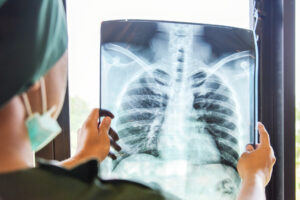Pregnancy and motherhood can be wonderful—but both come with distinct challenges. For thousands of recent mothers, the reality of their new life manifests in postpartum depression (PPD). The most commonly cited statistics about moms suffering from PPD in America are probably flawed. According to Health & Human Services, 15% of mothers in the United States suffer from postpartum depression.
But this number is almost certainly low; it only accounts for women who report their symptoms. This statistic also doesn’t include those who’ve experienced miscarriage, stillbirth or postpartum psychosis. Postpartum Progress a community for women suffering from postpartum mood disorders, reports nearly 950,000 women in America experience postpartum depression every year.
FOLLOW US ON FACEBOOK & INSTAGRAM
If Postpartum Progress’ number is more accurate, then nearly one million American women are experiencing PPD right now. So, what are their lives like and what treatments are available to them?
What Is Postpartum Depression?
PPD is a psychiatric major depressive disorder that affects women most commonly in the first six months after giving birth. According to Health & Human Services, the psychosocial risk factors associated with PPD include:
- Major depressive disorders before or during pregnancy
- Anxiety during pregnancy
- Medical complications during pregnancy or birth
- Stressful life events during pregnancy
- Poor social support
- Marital conflict
- Low income
- Immigrant status
- Past alcohol or substance abuse issues
- Young maternal age
A woman’s hormone levels change significantly during and after pregnancy. The rise and fall of hormones can cause mood issues, including depressive thoughts and erratic behavior. In the first couple weeks immediately after giving birth, it’s normal for up to 85% of mothers to experience the “baby blues.” From a biochemical perspective, women experience a dramatic drop in both estrogen and progesterone after delivery. Lowered levels of both of these hormones can cause a period of mood swings, sleep issues, anxiety and depression.
Becoming a mother is a major upheaval for both brain and body. There are an immense number of changes and physical trauma that need time to heal. Not to mention new moms are typically sleep and nutrition deprived, two things that can make women more vulnerable to the baby blues and, ultimately, PPD.
Symptoms of Postpartum Depression
How do you know if you have PPD? If the baby blues persist for longer than one month after birth, the odds are you’re dealing with postpartum depression.
Other symptoms include:
- Feeling defeated and being constantly overwhelmed
- Guilt about your performance as a mother
- Lack of bonding with your baby
- Feelings of anger
- Numbness
- Lack of appetite or need to over eat
- Too much or far too little sleep
- Thoughts of suicide or violence
Common Treatments for Postpartum Depression
When it comes to PPD, some of the most common treatments offered by doctors today are prescribing Prozac, Xanax, Valium, Ativan and Ambien. These pharmaceutical drugs are intended to counteract depressive thoughts and anxiety, and to encourage sleep. But these medications also come with some pretty serious side effects, from irritability to blurred vision and cognitive impairment. What’s worse is these drugs can also lead to dependency and addiction.
If a woman does decide to try pharmaceuticals to treat PPD, they may work for a while. But eventually, you can build up tolerances to these medications thereby eroding their effectiveness. The combination of these factors leaves some women feeling desperate for help but without any viable solutions.
Marijuana for Postpartum Depression
Let’s begin with a clear disclaimer: HelloMD doesn’t promote cannabis ingestion of any kind for women who are breastfeeding. Current research suggests that cannabinoids are passed through breast milk to children and can result in negative side effects for babies.
RELATED: IS CANNABIS SAFE FOR BREASTFEEDING MOMS
But for women who are suffering from PPD and aren’t breastfeeding, cannabis could be a better and safer alternative to other anti-anxiety and anti-depression drugs that are commonly prescribed. It’s well known that, with the right dose, cannabis is an effective anti-depressant for both men and women.
But when it comes to new mothers, there’s a specific reason why cannabis can be a godsend for those struggling with depression. And like most things about women’s health, it’s all about hormones.
When estrogen and progesterone levels drop as they do immediately after giving birth, women can experience uneven mood, just like what happens during a woman’s period. Mood issues arise because, in part, low estrogen levels mean low anandamide levels.
Anandamide is an endocannabinoid that helps regulate mood and appetite and creates feelings of joy—hence its nickname “the bliss molecule.” Anandamide is responsible for all sorts of good feelings, like a runner’s high during exercise or the euphoria you feel when taking a big bite out of a chocolate bar.
So, odds are most new mothers, thanks to their whacky hormone levels, are operating with very low levels of anandamide. Luckily, cannabis can help right this imbalance. Tetrahydrocannabinol (THC), the psychoactive cannabinoid in cannabis, happens to share an almost identical chemical structure with anandamide and interacts with the same receptors throughout the body. And cannabidiol (CBD), a cannabinoid known for its lack of psychoactive effects, helps block the breakdown of the natural anandamide in our bodies.
In short, THC replaces anandamide in the body, and CBD protects what little natural anandamide new mothers have. Cannabis is also known to help with sleep, anxiety and decreased appetite, three additional symptoms of PPD.
While cannabis may not cure postpartum depression, it can help relieve its symptoms. In a HelloMD interview with Foria, a leading cannabis brand focused on women’s health, the Foria team expressed the positive outcomes that many of their clients had when using CBD to battle postpartum depression. For mothers who aren’t breastfeeding, cannabis could be the natural treatment option for easing PPD.
Photo credit: Laura Lee Moreau
If you’re new to cannabis and want to learn more, take a look at our Cannabis 101 post. HelloMD can help you get your medical marijuana recommendation; it’s easy, private and 100% online.






